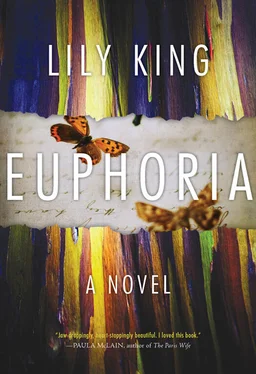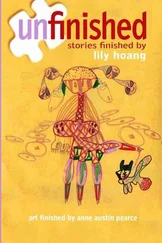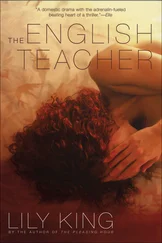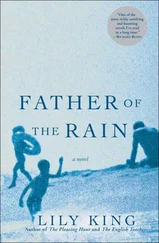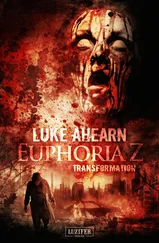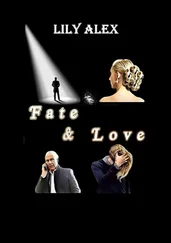John had the most potential to fulfill my father’s wishes for us. He was a passionate naturalist. His indentification of an extremely rare caterpillar when he was fifteen made it into The Entomologist’s Record. He took the prize in biology in his final year at Charterhouse School. If the war had not interrupted his trajectory, he would have most likely gone on to become the fourth Bankson to be a Cambridge don. At least this is what we all tell ourselves. John would have placated Father, and Martin would have been at liberty to follow his fancies. But John did not want to kill the things he studied. Nor was he interested in eggs or peas or cells or what they were calling germ plasma. He was interested in the triple-jointed legs of beetles and the eclipse feathers of mallards. He wanted to be outside mucking about in a field. But there’s no need to quibble over John. He is gone, as is all his potential and his happy little yelp in the trenches of Rosières as he dug a fossil out of the hard dirt wall.
Martin tried to appease my father and my father’s terrible grief after John died by studying biology, zoology, and organic chemistry. Only on the side, on the sly, would he write a poem or a play. But his grades were poor and he was miserable and finally he had to tell my father the truth. He was more interested in creating literature. My father was a great reader and a lover of the arts; he took us to the British Museum and the Tate and he read Blake and Tennyson to us in the evenings when we were children. But he did not believe ordinary citizens created art. True art was anomalous; it was a rare mutation. It didn’t happen simply because one willed it so. He thought it an utter and exasperating waste of an ordinary man’s time. Science on the other hand, science needed an army of educated men. Science was a place where men of above-average intelligence and education could find a foothold and push out the walls of knowledge. Science needed its rare geniuses, but it also needed its foot soldiers. My father had produced three of those foot soldiers. It was hard to convince him of anything else. I do not know everything that happened between my father and Martin in the three short years they had together after John’s death. I was away at school, at Warden House then Charterhouse, but I believe there were a great many letters that passed back and forth between them. ‘Your father has had another letter from Martin,’ my mother’s letters to me often read. She said no more but it meant that my father was greatly agitated and that my mother was writing me as a way of appearing busy and uninterruptible. She grew tired of the argument, though she never sided with anyone but my father, ever. Even after he was dead.
My long boarding school years were bookended by death. When I was twelve, I got word in Latin class that John had died. There were so many brothers of boys dying that they no longer took you out of class. You got a note, written on the deputy headmaster’s yellow paper, and you were told that you could leave the room if you felt the need. Not even the most emotionally feeble among us would dream of admitting to such weakness, so I stayed in class while the teacher carried on and my classmates did anything but look in my direction. It wasn’t tears you felt, not at first. It was more like being bathed in ethyl alcohol, which we used at home to anesthetize our insects. At night you cried, because everyone around you was crying, halls and halls of boys crying in the dark for their brothers. ‘Tears are not endless and we have no more.’ That is the line I like best of all those war poets.
Even still, it took a long time to feel much of anything again.
It was spring term of my last year at Charterhouse when I was called out of study hall and sent to the headmaster’s office. He told me Martin had shot himself and was dead. My parents had given instructions that I was to finish the school term before coming home. Martin had killed himself on John’s birthday beneath the statue of Anteros in Piccadilly Circus. There was an inquest, and a hearing, and his photograph on the front of the Daily Mirror. It was the most public suicide in English history. It must have been a great topic of conversation just beyond my earshot. To me, no one spoke a word.
I began my studies at Cambridge, where I took zoology, organic chemistry, botany, and physiology. That Christmas holiday I had planned to go to Spain with some chums, but the house fell through at the last minute and I ended up traveling the three miles to my parents’ house, where my father had me join him in a study at the British Museum on the anomalous striped feathers of the red-legged partridge. Next term I began to suspect, as Martin had before me, that I was not made for science. And yet I had to be made for science; Martin had made it clear that any other path was not worth taking. The meaning of life is the quest to understand the structure and order of the natural world — that was the mantra I was raised on. To deviate from it was suicide. When an opportunity arose to go to the Galápagos, the Holy Grail, I leapt at it. That was where the spark would be rekindled, where I would become enlightened. But I found the work as tedious on a boat as it was in the Bird Room at the British Museum with my father. I came to see that the whole Darwinian story of the fat-beaked finches eating nuts and the thin-beaked finches eating grubs was bunk because they were all mixed in together eating caterpillars quite happily. The only discovery I made was that I love a warm humid climate. I had never felt so good in my skin. But I came home despondent about my future as a scientist. I knew that I could not spend my life in a laboratory.
I took a course in psychology. I joined the Cambridge Antiquarian Society and found myself on a train to Cheltenham for an archaeological dig. I had taken a fancy to a girl named Emma in the Society, and had hoped to maneuver it so I’d sit with her, but another fellow had had the same idea and a bit more foresight, so I was left on my own behind them. An older man, clearly a Cambridge don, took the seat beside me, and once I gave up my sulk about the girl, we began talking. He was curious about my trip to the Galápagos, not about the birds or the caterpillars but about the Ecuadorian mestizos. He asked a number of questions I didn’t know how to answer but found intriguing and wished I’d thought to ask myself when I was there. He was A. C. Haddon, and this was my first conversation about a discipline he told me was called Anthropology. By the end of the ride, he’d invited me to do my Part II in Ethnology. Within a month, I’d switched over from the biological sciences. It was a bit terrifying, a bit of a free fall, to go from an extremely ordered and structured physical science to a nascent, barely twenty-year-old social science. Anthropology at that time was in transition, moving from the study of men dead and gone to the study of living people, and slowly letting go of the rigid belief that the natural and inevitable culmination of every society is the Western model.
I left for my first field trip the summer after I graduated. I could not get away fast enough. My father had died that winter (I’d been at his bedside; I’d had a chance to say goodbye, which made it easier) and my mother clung harder than usual to me. She became both unthinkably needy and cold-blooded. I do not know if she was trying to make up for the absence of my father or if his absence had unleashed a part of her personality that had been dormant during their long marriage. In either case, my mother was both anxious for my company and sickened by the man she imagined I was becoming. She thought anthropology a weak science, a false science, a phantasmagoria of words with no substance or purpose. She was so certain and uncompromising that even short visits were dangerous to my already wobbly convictions.
Читать дальше
